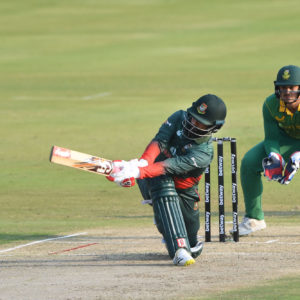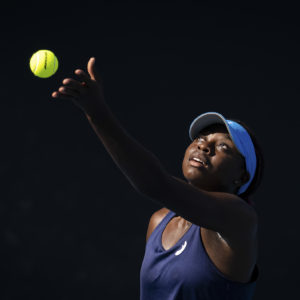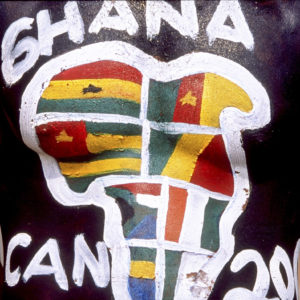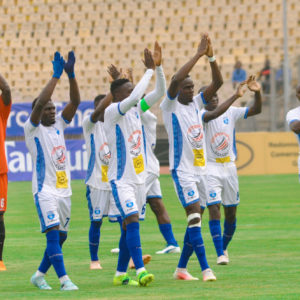Hockey coach Nkuliso Zondi is humble despite success
The interim coach of the women’s hockey team deserves to be appointed to the position permanently. His attitude and achievements for South Africa warrant it.
Author:
1 April 2022

Nkuliso “Inky” Zondi refuses to take credit for the success of the South African women’s national hockey team. Under his tutelage as interim coach, the senior women’s side won the Africa Cup of Nations in Ghana in January, beating the hosts in the final.
“The players were fantastic at the tournament,” he said. “They responded to my challenge and my demands on them as athletes.”
His unwillingness to take the credit for their success is perhaps reasonable given that South Africa have won seven of the eight editions they’ve contested since the tournament’s inception in 1990. In a way, success was always “guaranteed”.
Related article:
But what makes his success notable, and something in which he should take pride, is the racial barriers he has broken down. Hockey has a history of being viewed as the preserve of white people in South Africa, where racist laws – even in sport – denied Black people many opportunities. Even in post-apartheid South Africa there have been accusations of racism in the sport, with Black players not given a fair chance. The sport has been slowly moving towards addressing those concerns to produce more transformed national teams.
It is because of these transformation objectives that Zondi, who comes from the coastal tourist town of Amanzimtoti in KwaZulu-Natal, has been in the association’s coaching structures since 2015. But to be head coach of the senior national team, albeit not permanently for now, makes a big statement. And to have them succeed despite being thrust into the deep end at short notice speaks volumes about the 33-year-old’s technical and leadership abilities.
“Maybe my appointment is a tribute to where the sport would like to move. Maybe this is the start of something that moves us towards that. I believe that now, because of it, everyone can claim hockey as their sport irrespective of their colour or creed. About me being the first Black coach, of course it is special. It is something unique for me to treasure forever. But I don’t feel any less confident, because I am aware of what I’ve had to sacrifice to get here. Still, I don’t feel like I am the finished article yet. I know I can still grow from this.”
‘Honour and privilege’
At the team’s hotel in Pretoria before they left for Ghana, Zondi was fully aware of the weight of expectation resting on his shoulders, given South Africa’s dominance of the continental showpiece in previous years. Yet he did not baulk, and neither was there a hint of overconfidence in his demeanour. If anything, he displayed a maturity at odds with someone in complete charge for the first time.
“I feel a sense of honour and privilege to be leading this team, and I hope to make a positive impact and make sure that we represent our country and those who are supporting us with pride,” he said. “Of course we are expected to win it, as we’ve always done. But we can’t be complacent or take things for granted. For me as a coach, the challenge is to make sure that the team improves its performance and once we can do that, the results will come.”
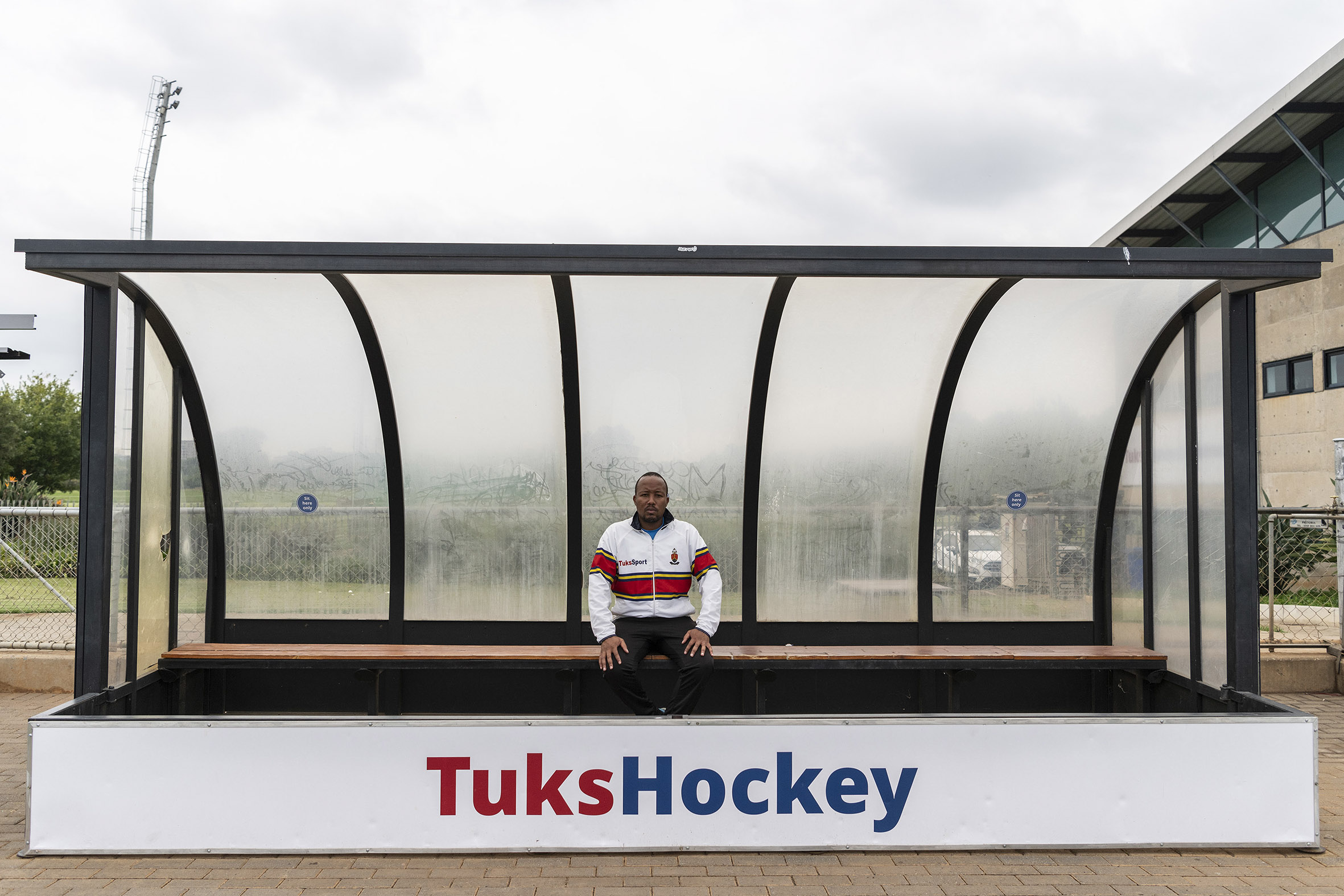
He remained grounded after their success in Ghana: “Going into the tournament, I saw it as an opportunity to represent my country. And I was ready for the role because I believed that the job had nothing to do with my skin colour. In any case, I’d been with national teams to major tournaments before, though not as the main man in charge.
“I have been ready to take up the mantle, and somewhere down the line I am hoping that more [Black] people will take encouragement from it. I know that sometimes we can find ourselves in a world of disbelief when these kinds of things happen. I can easily be wondering, is it really me, a young man from KZN coaching the senior national team? But I can’t afford to be caught up in that because I’ve got a job to do.
“I am fortunate in that I am coming into this space having spent a lot of time involved with various teams. I learnt a lot from the successes and failures there and I understand that the sport is special to so many people. I consider myself lucky to have been in the position to step into this role at short notice. The time in the system has been invaluable.”
A maturity that is rare
He has certainly earned his spurs. Zondi has been an assistant coach for the national women’s team as well as the men’s and women’s Under-21 teams. He has also been on the senior men’s technical team.
“I played hockey at school when I went to Kingsway in Toti. I did well to make it to provincial level and when I went to Tuks [University of Pretoria] I also played. I had some amazing experiences in the sport and of course the dream to represent the country was always there. But it didn’t happen and I did not beat myself up about it. I was aware of my limitations and never felt I deserved to be there.”
Such maturity is rare. Many sportsmen overrate their abilities and feel hard done by when they’re not called up to represent their country. It was while studying business management at Tuks that Zondi got into coaching, although more out of necessity.
Related article:
“I started coaching as a means to earn extra money as a varsity student. I coached schools around Pretoria, the likes of Cornwall Hill College, Menlo Park and Willowridge. It was through those experiences that I realised I could do this, more than that I became aware that I loved and enjoyed coaching.”
He moved on to coaching at the university, where he now heads the hockey programme. The national association soon picked up on his abilities and roped him into their structures. Zondi has a coaching philosophy that works and Hockey South Africa would do well to give him the job permanently, so he can lead the team at the World Cup in July, the Commonwealth Games a month later and beyond these tournaments.
He knows the job is about results, but has learnt from experience – as a player and during his earlier coaching years – that it is just as important to uplift the players. “I want to impact the people I work with in a positive way, so personal connections are the most important for me. After all, people play the game. So I always say: people first, players later.
Related article:
“It delights me to see them progress as people because of the influence I have had on them as their coach. For example, I have coached Phumelela Mbande since 2011 at Tuks and I’ve been delighted to watch her grow through the junior national teams and at Under-21 level to her now being a top goalkeeper with the senior national side. And as a person, I see the progress in her life and I am very happy I contributed.”
He also believes in putting in the effort, he said. “Work ethic is a big thing in my coaching philosophy. I think something that is true about me and perhaps true for most young Black people is that our upbringing is steeped in humility. A lot of us have been encouraged to work hard and to never take anything for granted. My parents made sure that hard work is the one thing that I valued most in everything I do.”
It’s all about preparation
Success in Ghana, he said, was a fantastic experience and down to him and the players being on the same wavelength. “We were improving with every game and the good thing was that we were able to control the narrative of each match. We always wanted to win out there and retain the championship, but we started the group game against Zimbabwe a little slow. We actively looked to make improvements after that and I knew in the game against Namibia that we were good to go all the way. We had improved so well, I was really comfortable with our play.”
They hardly looked back after that and went on to become champions of Africa once again, earning their ticket to the World Cup. And now that they will be heading to the global event co-hosted by Spain and the Netherlands in July, Zondi – who was on the technical team at the Tokyo Olympics – hopes the team will get the backing they need to make an impact at the global showpiece.
“Now that we are assured of going to the big event, the discussion has to change drastically. We need all the assistance we can get so that we can be competitive at the World Cup. The talent is certainly there and the desire to do well is bigger than ever, but without proper support and good preparation it won’t amount to much.”
Related article:
He said South Africa could have done better at the Olympics had their preparation not been hamstrung by the Covid-19 pandemic restricting their ability to play competitive matches against top-class opposition.
“It’s very important that we get good preparatory matches. If we can manage to play regularly against solid opposition, we will grow in confidence and our abilities, and that will stand us in good stead for the World Cup.
“Our challenge in South Africa is that the sport is not fully professional as most of our players are either working or are still students. They are not always available and we thus can’t have proper camps to prepare. But if the sport was to get serious backing from corporate South Africa and become professional, I believe that we have the talent for us to get to the level of being competitive at major tournaments such as the World Cup and the Olympics.”

